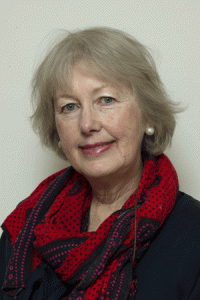
 ‘What’s this used for?’ he asks.
‘What’s this used for?’ he asks.
‘It’s an all purpose space,’ I venture and he makes a note on his Ipad.
How can I tell him it’s my favourite part of the house because it’s sunny and modern, and not Victorian like the rest. We built it, I want to explain, but he’s not impressed. Maybe estate agents don’t do ‘impressed’. He moves back into the kitchen and nods approvingly at the Aga.
I remember the sound of Olivia’s voice as she ran up and down her scales. We had parked her and the piano in the side extension because her voice had become so powerful that James feared for the safety of his great aunt’s chandeliers. He didn’t realise that what really threatened them was my desire to smash them to smithereens.
I hurry after the agent into the dining room where the cornices and ceiling rose elicit further tapping into the Ipad. ‘Is there anecdotal family history?’ he asks. ‘Buyers like that.’
‘The ancestor who built the house was a tyrant,’ I tell him. ‘You see this patch in the floorboards? There was a bell there for the maid, right by his chair, so he could call her without getting up. That’s him hanging up there, with the mutton chop sideburns. He had two daughters, Joanna and Agnes. James inherited from the daughter of Agnes.’ Too much information, the agent looks confused.
No point in telling him that Great Aunt Joanna knew Florence Nightingale. Not in the Crimea, she didn’t go back that far, but as a nurse in a home for incurables in Putney. She was proud of having been an early graduate of Nightingale’s School of Nursing, so Joanna’s niece had told us. She was set on making a career for herself; marriage didn’t interest her.
‘That completes things,‘ the agent says. ‘We’ll get a board up and upload the details on the property websites. People are looking for period properties, but all these paintings, furniture, ornaments, I suggest you put some in store, the place seems over-furnished.’ Music to my ears. Time to move on, I’ll tell my husband, to rid ourselves of this dark, heavy stuff. And that ghastly portrait in our dining room, it has to go.
At the weekend I work through drawers, cupboards, high shelves, low shelves, forgotten corners, and corners too visible and choked with stuff to forget. I fill waste bins with old papers, pack suitcases for the homeless, box crockery for the church fete, and mark which hideous pieces can go to auction, including the portrait of James’ mutton-chopped ancestor.
James is peevish for he has no wish to ‘move on’. He refuses to fix the loose floorboard by the dining chair and shows no interest when I find hidden beneath it a stack of letters. The letters slow me down for the first one I read tells me I have found treasure. ‘Dear Agnes,’ it says, ‘I went round to Miss Nightingale yesterday in South Street.’
The birdsong in the garden seemed to recede as I read. ‘She is confined to her bed and was reluctant, at first, to see me. When the maid explained that I was keeping statistics on the patients in my care, Miss Nightingale relented. You see, dearest sister, she is much taken with statistical accounts, she says that only with evidence can we improve the conditions of the poor. She is very pious but much afflicted with melancholy, I believe.’
More follows, about hygiene, a new boiler for washing bed linen, Miss Nightingale’s revised Notes on Nursing, then statistics on survival rates among the consumptives. I take the remaining letters to the sunny side extension, make a coffee and read one that appears to be addressed by Joanna to the father. It is hastily scrawled, the grammar is less punctilious. As I read it, my blood runs cold. It concerns his nocturnal visits to her room after their mother died and is full of anger, contempt and disgust. It makes it clear why she never returned to the house once she graduated as a nurse. Curious, I think, that her sister must have found the letter on his death and decided to hide it with the others.
I hold it a while, then walk upstairs and along the corridor to what used to be Joanna’s bedroom. In a funny sort of way I feel relief for I always felt this house was malign. Olivia, I remember, had wanted to sleep in Great-Aunt Joanna’s room because it looked out onto the orchard. But after two nights she’d cried before her bedtime and said she wanted to change rooms, she felt it had a ghost. After that the room lay empty.
With an eerie creek the door slowly opens. I look up, my heart jolting. Then I realise that a draft from the ill-fitting windows has caused it to stir. A feeling of cold brushes my cheek. Drafts, we have so many in this house. I look at the bed and imagine the door creaking ajar, the heavy figure of the girl’s father standing there with the light behind him, the sound of furtive footsteps tiptoeing towards her. I light a candle and burn the letter, whispering. ‘You’re safe now, Joanna, you can rest.’
*
‘I’m relieved it’s sold but I’m sad,’ says James as we watch the removal lorry lurch out of the drive. ‘I know you never liked the house, love, it was expensive to run, but it was a happy house.’ I think of his ancestor’s portrait which has been sold to the Cavendish Arms, our local pub. I don’t dwell on the letter, instead I turn my thoughts to our skylighted extension, listening to Olivia’s scales while I took supper out of the Aga. The memory is sweet enough to help me lie. ‘Yes,’ I say to James, ‘it was a happy house.’
Sheena Vernon is the author of historical novel Messiah
Categories:
0 comments on this article







